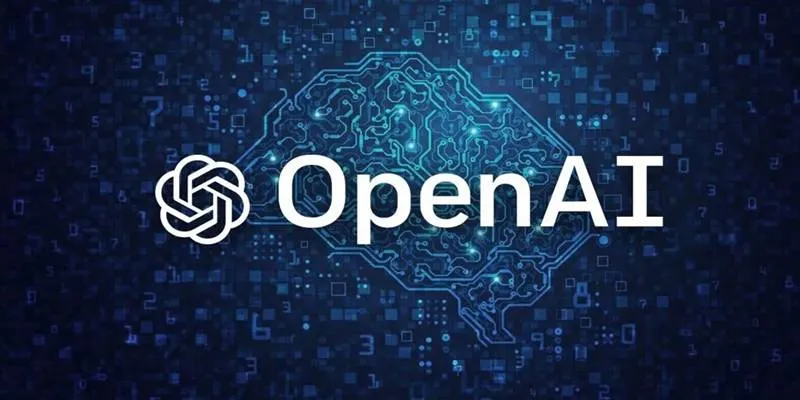Neural networks are revolutionizing business by solving complex problems, streamlining decisions, and automating tasks for greater efficiency and profitability. However, their success hinges on data quality and ethical considerations, requiring businesses to balance potential with limitations for effective use.
What Are Neural Networks?
Neural networks are complex computational models inspired by the biological understanding of the human brain’s structure and functioning. These networks consist of nodes arranged in layers that connect with each other to process input data and produce outputs. They excel in pattern recognition and prediction, utilizing a training procedure for continuous enhancement. Unlike conventional programming, which follows predefined rules, neural networks learn from existing data. Their unique capabilities are best suited for complex data processing tasks, including image detection, natural language processing, and predictive analytics.
Business Applications of Neural Networks

Revolutionizing Financial Forecasting and Risk Management
In the financial sector, neural networks are crucial for tasks like credit scoring, fraud detection, and risk assessment. Their ability to uncover subtle patterns often missed by traditional statistical models makes them invaluable. By processing vast amounts of financial data, these systems can predict market trends, evaluate creditworthiness, and identify anomalies indicative of fraud. Their predictive accuracy empowers financial institutions to make smarter, data-driven decisions and effectively mitigate risks.
Supply Chain Optimization
Neural networks are transforming the management of complex supply chains. By leveraging these advanced models, companies can accurately forecast demand, optimize inventory levels, and streamline logistics. Neural networks analyze historical sales data, seasonal trends, and external factors like weather and regional influences to predict demand shifts. This capability helps organizations minimize waste, prevent stockouts, and improve overall supply chain efficiency. Additionally, neural networks play a pivotal role in predictive maintenance by processing sensor data to detect potential machinery failures before they disrupt operations.
Marketing and Sentiment Analysis
Neural networks are indispensable in modern marketing. Utilizing natural language processing, they can interpret customer sentiment from reviews, social media posts, and survey responses. This allows businesses to gain valuable insights into customer perceptions of their products or services. Armed with this data, marketers can refine messaging, segment audiences with precision, and adjust campaigns in real-time based on performance and feedback. These models empower marketing teams to craft more targeted and impactful strategies, driving better engagement and results.
Human Resources and Talent Management
In HR, neural networks are revolutionizing talent management. These tools streamline recruitment by efficiently screening resumes, predicting employee turnover, and identifying the best candidates for specific roles. By reducing hiring biases and enhancing decision-making, neural networks help create more equitable and effective hiring processes.
Advantages of Neural Networks in Business
1. Empowering Data-Driven Decisions
Neural networks enable businesses to base decisions on concrete data rather than intuition. By uncovering actionable insights, leaders can refine strategies and respond swiftly to emerging trends, ensuring smarter and more effective decision-making.
2. Unmatched Scalability and Efficiency
Once trained, neural networks can process vast amounts of information in real- time, seamlessly handling extensive datasets. This scalability makes them ideal for growing businesses and data-intensive industries, driving operational efficiency and innovation.
3. Automating Complex Processes
Neural networks excel at automating tasks that once required human expertise, such as pattern recognition, data classification, and speech analysis. By reducing reliance on manual effort, businesses free up their teams to focus on strategic, high-value activities.
4. Achieving Superior Accuracy
Neural networks often outperform traditional methods, delivering exceptional accuracy in prediction and classification tasks. This reliability is especially critical in fields like finance and logistics, where even small errors can lead to significant consequences.
Limitations and Challenges of Neural Networks
While neural networks offer significant advantages, they also present notable challenges. Understanding these limitations is crucial for businesses aiming to use this technology responsibly and effectively.
1. Lack of Transparency
A major concern with neural networks is their “black box” nature—it’s often unclear how these models arrive at specific conclusions. This opacity poses accountability issues, particularly in regulated industries where decisions like loan approvals or medical diagnoses require clear justification. The absence of transparency can create reluctance to trust and adopt neural networks for high-stakes decision-making scenarios.
2. High Data Requirements
Neural networks rely on vast amounts of high-quality data for effective training. If the data is incomplete, outdated, or biased, the model’s accuracy and reliability will suffer. Moreover, gathering and preprocessing data can be resource-intensive and time-consuming. Businesses also face the challenge of balancing data collection with privacy concerns and adhering to data protection regulations, adding an extra layer of complexity.
3. Complexity and Cost of Implementation
Deploying neural networks isn’t as simple as launching a pre-built model. It requires skilled experts in AI and data science, as well as robust infrastructure for training and maintaining these systems. For smaller businesses, the financial investment can be daunting, with costs spanning from model development to ongoing operations.
4. Risk of Overfitting
Neural networks sometimes become overly tailored to their training data, a phenomenon known as overfitting. When this happens, the model performs well on test data but struggles in real-world applications. This risk highlights the importance of regular validation, testing, and retraining to ensure the model remains adaptable and effective.
5. Ethical Considerations
When applied in sensitive areas such as recruitment, finance, or customer service, neural networks can raise ethical concerns. If the training data contains bias, the model risks perpetuating or even amplifying discriminatory patterns, leading to unfair outcomes. Ensuring fairness, accountability, and ethical use of these systems is an ongoing challenge that businesses cannot overlook.
Best Practices for Leveraging Neural Networks in Business

To harness the full potential of neural networks while mitigating risks, businesses should follow these essential best practices:
1. Define Clear Objectives
Start by identifying the specific challenges your neural network aims to address. Whether the goal is improving customer retention or detecting anomalies in supply chain data, clear objectives serve as a foundation for model development and evaluation.
2. Prioritize Data Quality
The success of any neural network hinges on high-quality data. Ensure your data is accurate, diverse, and properly labeled by implementing robust processes for cleaning, labeling, and regular updates. This keeps your model relevant and reliable over time.
3. Incorporate Human Oversight
Neural networks are tools to enhance—not replace—human decision-making. Maintaining human oversight ensures results can be validated, errors identified, and decisions informed by both machine intelligence and human expertise.
4. Continuously Monitor and Retrain
Regularly evaluate your model’s performance in real-world environments. As performance declines or new data becomes available, retrain the model to maintain accuracy, adaptability, and effectiveness.
Conclusion
Neural networks are a transformative force in modern business, offering immense potential to automate tasks and uncover insights from vast datasets. However, unlocking this potential demands thoughtful planning, ethical implementation, and a clear understanding of their limitations. Businesses that embrace neural networks with a blend of ambition and caution are better equipped to drive innovation while preserving trust, ensuring compliance, and maintaining operational excellence.
 zfn9
zfn9






















